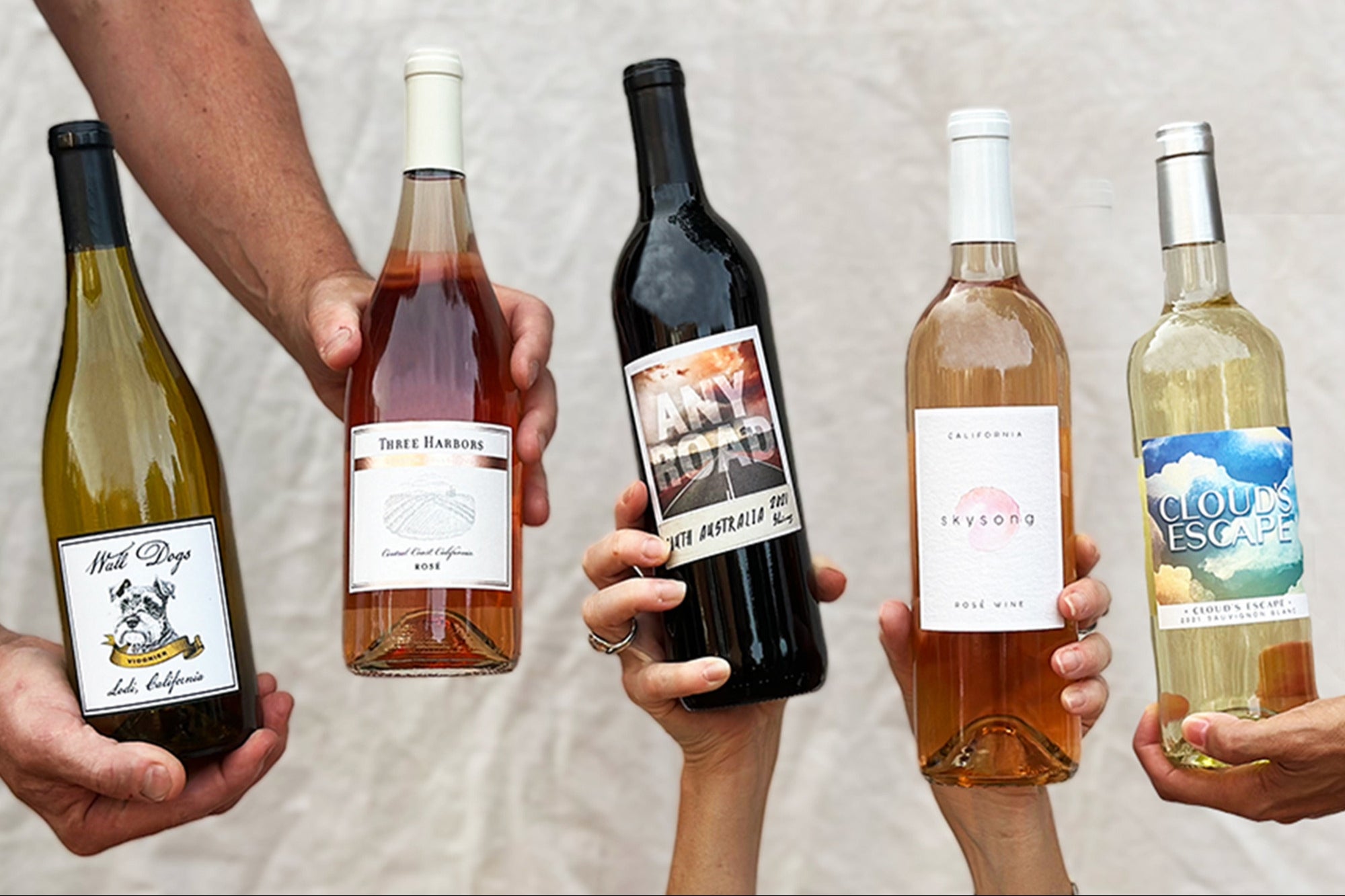Plastic Players Get the lowdown on news, trends, programs and more.
Opinions expressed by BIZ Experiences contributors are their own.
Mohnish Pabrai reached an impasse in his corporate career in1990. As a single guy with few fiscal responsibilities, it seemedthe best time to start his own business. He collected $45,000 incredit on 14 credit cards and started TransTech Inc., an ITconsulting firm in Downers Grove, Illinois.
After two years in business, Pabrai had clients--but no cashflow. To keep his tech venture going, he dove deeper into debt byconvincing four friends to lend him $5,000 each from theircredit cards. "And they were insane enough to do it,"jokes Pabrai, 34. "When minimum payments came due, I would goto the next card and take a loan. I never missed a payment, sothere were never any credit [problems]."
Pabrai's gamble paid off: He cleared his debts, and today,TransTech is a $30 million company with 250 employees. But not allentrepreneurs are so lucky. Credit cards may be the easiestattainable form of financing, but they come with a price: heftyinterest rates, dozens of bills to juggle, and a possible 10-yearpurgatory of bad credit reports if you get in over your head.
"BIZ Experiencess need to be careful they don't confusetheir hopes with the true likelihood of growth in a business. Whenyou get a loan from a bank, [you have] to develop a business planwith clear objectives and you go through it with somebodyelse," says Todd McCracken, president of National SmallBusiness United, a small-business advocacy group. "That'susually a reality check people who use credit cards don'thave."
But when banks say no and credit card companies say yes, shouldyou go for it? "Many start-ups today don't have enormouscapital needs. If you need a computer and some office furniture,it's not worthwhile to go to a bank," says McCracken."But if you're going to be operating at a loss for sometime and you're making upfront investments, you're going tohave to get a pretty high rate of return on those investments topay off 18 percent [interest on credit cards]."
Establishing debt seems to be an easier task than establishingcredit, so before you fill out any of those ubiquitous card offers,plan your expenses and potential cash flow carefully to see whetherthe downsides of credit cards (interest rates of 18 percent andhigher) are worth the upsides. ("You're breathing?Here's your platinum card.")
Who's In Charge
- 47 percent of small and midsized businesses used credit cardsfor financing in 1998, compared to 34 percent in 1997.
- 43 percent say they'll continue to use credit cards in1999.
- 38 percent of small and midsized businesses paid their balancesin full each month in 1998, compared to 59 percent in 1997.
- 18 percent of companies surveyed have two or three cards; 5percent have more than four cards.
- 49 percent of businesses with fewer than 20 employees use cards"often," compared to 27 percent of businesses with morethan 20 employees.
(Source: survey of small and mid-sized businesses, conducted byArthur Andersen's Enterprise Group and National Small BusinessUnited)
Mr. Potato Head
By Michelle Prather
Sure, most people enjoy a pile of mashed potatoes to round off ahearty meal, but mashed potatoes as the star of lunch or dinner?You bet, says Brent McClun, whose feel-good Potato Mountain cafewill bring in $180,000 this year.
"[Mashed] potatoes have always reminded me of the greathome I had growing up: a great mom and dad, great brothers, mygrandma and the great heritage I have," says McClun fondly.His affection for the popular comfort food, coupled with his loveof mountain climbing and skiing, inspired McClun to try to projectthose warm, fuzzy feelings to customers in a restaurantsetting.
With just $1,500, last May McClun opened The Herbery/The PotatoMountain, a nine-seat restaurant/store that sells herbs, vitamins,candles, books--and mashed potatoes. It's the latest in a slewof BIZ Experiencesial endeavors he's toyed with since age 18."I remember thinking `This time I'll start two[businesses] at once to increase my chances,' "chuckles McClun.
Expecting the Lawrence, Kansas, store to profit from herbs onopening day, McClun was surprised when he "didn't sell oneherb" but reaped nearly $70 in spud sales. Sales nearlydoubled on days two and three. Then a local newspaper did a storyon the start-up, sending business out of control. "I had totell [the line of people snaking out the door] we were out ofpotatoes and it'd be an hour before we had any more,"recalls McClun. He even offered to buy waiting customers lunch atthe Lawrence eatery of their choice.
With demand at its peak, McClun had no choice but to find abigger space for the cafe. He pounced on the first availablelocation--a 45-seat restaurant just three blocks away--and openedit for business six weeks after launching his first location, whichhe's since turned into an old-fashioned candy store.
At press time, McClun had remodeled that second location byfilling it with faux alpine trees, a trail through the dining areaand a ranger's station for ordering, and was exploringfranchising. Publishing house Doubleday has contacted McClun abouta possible cookbook deal, and Dateline NBC has showninterest as well.
It appears that, like their towering counterparts in nature,mashed potato mountains (with such flavorful toppings as chicken,egg noodles and gravy) are giving customers a breath of fresh airas an alternative to the average dining experience.
That Was Then
60's
Hot to wear: Dark suit, white shirt, rep tie
Hot to carry: Hard-sided briefcase
Hot to drive: Chevy or Ford sedan
Hot to order at a business lunch: Steak, 2 or 3 ginmartinis
Hot networking: The bar
70's
Hot to wear: Wide-lapel suit, pastel shirt, loud tie
Hot to carry: Calculator
Hot to drive: Sports car
Hot to order at a business lunch: Steak, 2 or 3 ginmartinis
Hot networking: The tennis court
80's
Hot to wear: Men - designer suit, suspenders, powertie.
Women - skirted suit, floppy bow tie, pearls.
Hot to carry: Filofax
Hot to drive: BMW
Hot to order at a business lunch: Salad, Perrier
Hot networking: The golf course
90's
Hot to wear: "Business Casual" - Khakis, notie
Hot to carry: Cell Phone
Hot to drive: Sports Utility Vehicle
Hot to order at a business lunch: Iced tea, fish... andsteak
Hot networking: The gym
The Einstein Within
By Laura Tiffany
What's your sign? What does your business's name add upto in numerology? What color is your parachute? Answer thosequestions, and you still won't know why you're lost under aheap of paperwork you'd rather be doodling on, or whyyou're leading a sales meeting when you'd rather bedesigning the office's computer network. If you really want toanalyze your BIZ Experiencesial personality, you've got to answerthese questions: Are you better at reading maps or understandingnumbers? Do you prefer to create activities or carry them out?Would you rather spend spare time working on a jigsaw puzzle or acrossword puzzle? Do you tend to work best with open-ended tasks ora detailed timeline?
Jane Hurd developed the Discover Your Everyday Geniuspersonality profile using questions like the ones above to measurehow a person operates best in business and in life. As aco-managing partner of executive search firm Rollo Associates inLos Angeles, she found most personality tests just didn't dothe trick. Testing whether an individual is right-brained orleft-brained may tell you if they want to be an accountant or anartist, but it doesn't tell you their best work environment."[For that,] you [need to] measure another aspect: How peopletend to handle decisions--whether they like closure or like to keeptheir options open," says Hurd.
"Each of us has a natural `genius zone,' and whenwe're operating within that zone, everything we do is easy andcomfortable," explains Hurd. "When you get outside yourzone, it starts to feel like you have to put your nose to thegrindstone to really accomplish anything." The DiscoverYour Everyday Genius profile questions determine whichcombination of left-brain/right-brain andprocess-oriented/closure-oriented you are--that is, whetheryou're a genius visionary, genius planner, technical expertgenius or genius manager. (Discovering your inner geniusdoesn't come free; Hurd charges $300 an hour for herservices.)
Knowing your genius not only helps you design a better workenvironment, it can also show you how to better relate to businesspartners, clients and associates. "It's important torecognize other people's geniuses--to not get in a positionwhere you're trying to change people and make them think oroperate like you do, but rather where you're leveragingeverybody's contributions," points out Hurd. "Ittakes all four types [of genius] to make anything a success. Ittakes having the idea; it takes a plan of execution; it takestechnical expertise; and it takes management skills."
So if you find out you're a visionary genius (i.e.,you've got the idea), you may want to consider partnering witha genius planner who develops marketing and business plans, atechnical expert genius who engineers the mechanical kinks out ofyour product, and a genius manager who can hire just the rightsales reps. Says Hurd, "By knowing yourself clearly andknowing what your skills are, you know what kind of expertise youneed to bring in to round out the picture."
For more information on the Discover Your Everyday Geniuspersonality profile, e-mail Jane Hurd at everydaygenius@rolloassoc.com
Cheers!
Are you a woman age 21 or older with a brilliant businessidea . . . but without the funds to get it offthe ground? DeKuyper Peachtree Schnapps could help.
No, we don't mean getting soused on schnapps and lamentingyour skimpy bank account. We mean entering the DeKuyper"Search for Enterprising Women" contest, which will award$5,000 each to three innovative women BIZ Experiencess to help themlaunch their businesses.
Contestants must submit a business plan of 250 words or lessthat includes a description of their product or service andexplains why there is a need for this product or service; whyyou're qualified to start this business; and how the $5,000would be spent. A panel of experts will judge entries onoriginality, creativity and feasibility.
For details, call (800) 360-3043; entries must be receivedby July 31, 1999. No alcoholic beverage purchase is necessary toenter, although you might want to celebrate with a toast if youwin.
Contact Sources
National Small Business United, nsbu@nsbu.org, http://www.nsbu.org
Potato Mountain LLC, (785) 842-1997, herbery@sprynet.com
TransTech Inc., (800) 676-7374, http://www.trans-tech.com










